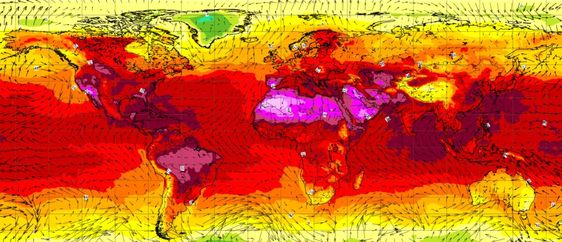
20 July 2020 Gulbenkian Prize
Greta Thunberg is the winner of the first Gulbenkian Prize for Humanity
The first edition of the Gulbenkian Prize for Humanity has been awarded to Greta Thunberg. The young Swedish environmental activist was selected among 136 nominees (corresponding to 79 organizations and 57 personalities) from 46 different countries.

Thunberg’s foundation will donate the award money of 1 Million Euros to charitable projects combatting the climate and ecological crisis and to support people facing the worst impacts, particularly in the Global South. Starting with giving €100.000 to the SOS Amazonia campaign, led by Fridays For Future Brazil to tackle Covid-19 in the Amazon, and €100.000 to the Stop Ecocide Foundation to support their work to make ecocide an international crime.
Jorge Sampaio, Chair of the Grand Jury of the Prize, has emphasized the broad consensus of this choice and pointed out “the way Greta Thunberg has been able to mobilize younger generations for the cause of climate change and her tenacious struggle to alter a status quo that persists, makes her one of the most remarkable figures of our days”. Jorge Sampaio has also stressed her enormous responsibility in consolidating her pedagogical role and her leadership in the fight against climate change, as a condition for sustainable development, towards which the attribution of this Prize aims to contribute.
The Grand Jury, composed of internationally renowned personalities from the fields of science, technology, politics and culture, has highlighted Thunberg’s charismatic and inspiring personality, but also the force of her singular and distressing message capable of arousing disparate feelings, and her capacity to make a difference in the fight against climate change.
The President of the Calouste Gulbenkian Foundation, Isabel Mota, emphasized that “By awarding this Prize, the Foundation highlights its commitment to urgent climate action, fostering communities that are more resilient and better prepared for future global changes, while also protecting, in particular, the most vulnerable”.
Greta Thunberg said: “I’m extremely honoured to receive the Gulbenkian Prize for Humanity. We’re in a climate emergency, and my foundation will as quickly as possible donate all the prize money of 1 million Euros to support organizations and projects that are fighting for a sustainable world, defending nature and supporting people already facing the worst impacts of the climate and ecological crisis — particularly those living in the Global South. Starting with giving €100.000 to the SOS Amazonia campaign, led by Fridays For Future Brazil to tackle Covid-19 in the Amazon, and €100.000 to the Stop Ecocide Foundation to support their work to make ecocide an international crime.”Volume 90%01:3300:4101:37
GRETA THUNBERG
Born in 2003, Greta Thunberg is a highly prominent international figure known for alerting to the existential crisis that humanity is facing because of climate change. She gave voice to the concerns of young generations about their future, which is at risk due to global warming and has been in the spotlight for her youth but also for her direct and incisive communication. Her global influence is unprecedented for someone of her age. She was considered to be one of the 100 most influential personalities of the world by Time Magazine and awarded the title “Person of the Year” by this magazine in 2019; the Forbes Magazine has also included her in the list of the World’s 100 Most Powerful Women of 2019 and she was nominated twice for the Nobel Peace Prize (2019 and 2020).
ABOUT THE PRIZE AND THE JURY
The Gulbenkian Prize for Humanity, awarded annually, in the amount of 1 million euros, aims to recognise people, groups of people and/or organisations from all over the world whose contributions to mitigation and adaptation to climate change stand out for its novelty, innovation and impact.
The Grand Jury chaired by Jorge Sampaio, President of the Portuguese Republic from 1996 to 2006, is composed by personalities like Hans Joachim Schellnhuber (Founder and Director Emeritus of the Potsdam Institute for Climate Impact Research), Hindou Oumarou Ibrahim (President of Indigenous Women and Peoples Association of Chad), Johan Rockström (Director of the Potsdam Institute for Climate Impact Research and Professor at the University of Potsdam), Katherine Richardson (Coordinator of the Centre of Sustainability Science at the University of Copenhagen), Miguel Arias Cañete (former European Energy and Climate Action Commissioner), Miguel Bastos Araújo (Geographer, Pessoa Award 2018), Runa Khan (Founder and Executive Director of the Friendship NGO and Country Chair of Global Dignity Bangladesh) and Sunita Narain (Writer and environmental activist, Director of the Centre for Science and Environment, New Delhi).
A Committee of Specialists, presided by Miguel Bastos Araújo, has evaluated, in a first stage, 136 nominations and presented a shortlist of 10 nominees, for the final assessment of the Grand Jury. This Committee was composed of figures such as Arlindo Oliveira (Full Professor at the Department of Information Technology, Instituto Superior Técnico, Lisbon), Carsten Rahbek (Director of the Centre for Macroecology, Evolution and Climate, University of Copenhagen), Rik Leemans (Director of the Environmental Systems Analysis Group, Wageningen University) and Viriato Soromenho Marques (Professor of Political Philosophy Teacher at the University of Lisbon).Find out more




26 Comments
Pingback: Residual income opportunities
Pingback: 다시보기
Pingback: หวยวิ่งล่าง
Pingback: sahabatkartu
Pingback: สั่งซื้อ RELX POD และ RELX INFINITY
Pingback: Japanese tattoo Khao Lak
Pingback: ทินเนอร์
Pingback: 20117 Homes for Sale
Pingback: สล็อตเว็บตรง
Pingback: buy passport online
Pingback: take a look at the site here
Pingback: สล็อตเว็บตรง
Pingback: witty
Pingback: bonanza178
Pingback: ASIA GAMING
Pingback: spin238
Pingback: แทงบอล lsm99
Pingback: ระบบบริหารหอพัก
Pingback: kojic acid soap
Pingback: ยาน้ำเทียนเซียน
Pingback: other
Pingback: buy psilocybin Washington
Pingback: เค้กทุเรียน
Pingback: game sex
Pingback: ปั้มไลค์
Pingback: เพิ่มไลค์